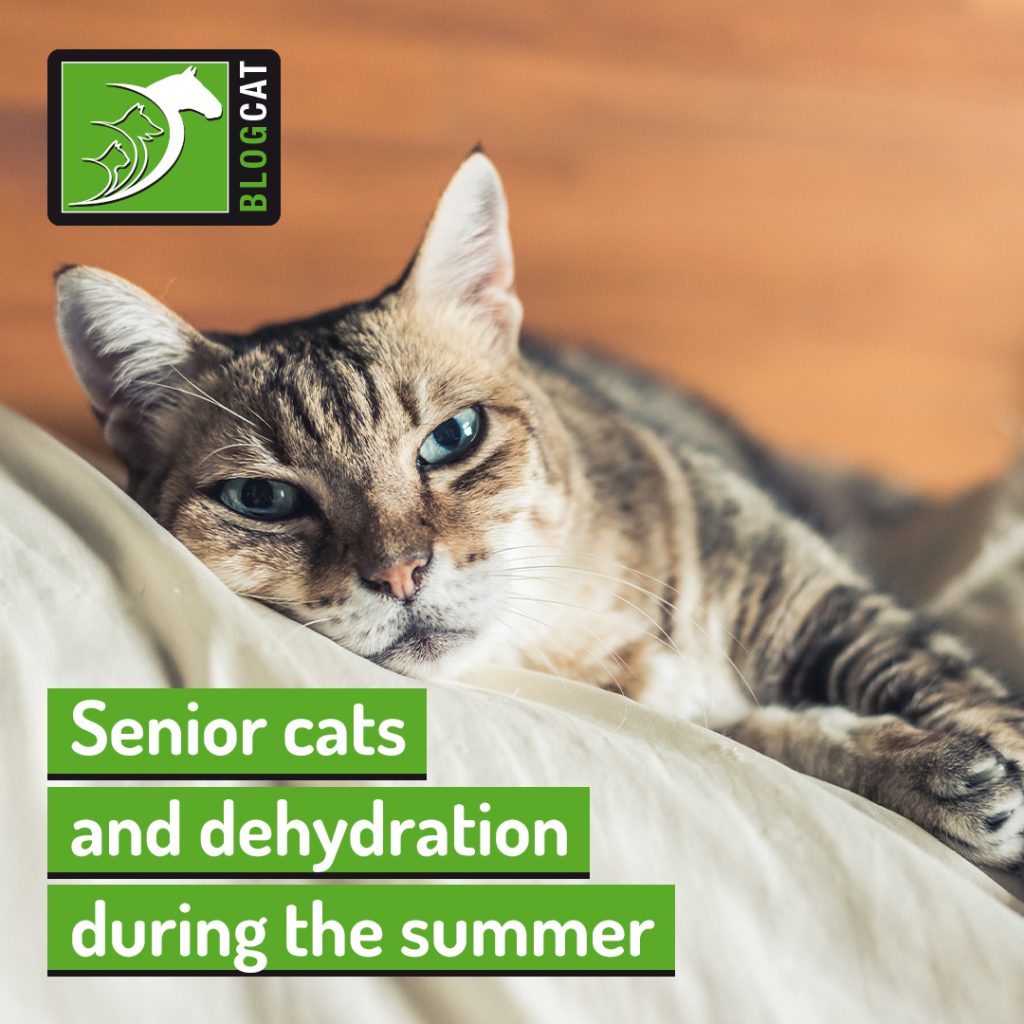
Old cats and dehydration during the summer

As the temperature rises, keeping a close eye on our senior cats is essential! When hot days arrive, it's easier for our older feline friends to lose more fluids than normal, and if they aren't given enough encouragement or opportunities to drink more water, this situation can quickly tip into severe dehydration.
Learn more about keeping your golden oldies hydrated and happy through the summer in our blog post below!
What is dehydration?
Dehydration happens when there is a significant loss of bodily fluids, and they are not adequately replenished. There are many ways for your pets to lose more water than usual, including hotter days, lack of access to clean water or many health conditions like diabetes, kidney disease or cardiac problems.
Here are some of the most common early signs of dehydration:
- Confusion or lack of coordination;
- Lack of appetite and lethargy;
- Trouble breathing and panting excessively;
- Sunken eyes and reduced skin elasticity;
- Collapse.
While mild dehydration can be easily fixed and is not likely to cause long-term harm, if this situation progresses enough, it can be fatal! Severe dehydration compromises most bodily functions, including circulation, digestion and removal of the body's normal waste products and might need a prompt medical intervention!
Is my older cat at a higher risk of dehydration?
Older cats are often at a higher risk of being dehydrated, especially during the summer, as they can't retain water as well due to reduced body mass, thinner skin, plus they might not be as inclined to drink water like when they were younger.
If your golden oldie is also suffering from several common diseases such as kidney disease or diabetes, this makes them lose a higher-than-average amount of water through their urine. This, coupled with high heat and a relative lack of drive to drink water, might cause mild to severe dehydration.
As a caring owner, it's essential to pay close attention to your senior pets, and if you spot any of the signs we have mentioned above, please get in touch with your vet as soon as you are able. They will help you evaluate the situation and how to correct it before it becomes a serious problem.
How can I help my cat drink more water?
In order to avoid issues with the heat and dehydration, it's best to be proactive!
As the days grow hotter, keep track of how much water your cat is ingesting. You can also implement several strategies to encourage him or her to ingest more water, helping avoid excessive loss of fluids.
Consider:
- Making sure his or her water bowls are always filled with fresh, clean water;
- Changing the bowls to a water fountain as cats often enjoy flowing water;
- Switching to wet food that is appropriate for seniors as this type of diet is much higher in water than dry kibble;
- Adding some flavour to the water, for instance, with chicken broth or tuna water (not oil).
Also remember that many painful conditions like osteoarthritis, dental disease or cancer can make eating and drinking very difficult for pets.
For these cases, your vet will help you figure out the best way to keep your feline friend hydrated and as pain-free as possible, so don't hesitate to approach them with your difficulties and concerns!
Published: 02 Aug 2023
Read the previous article: Ringworm in dogs

